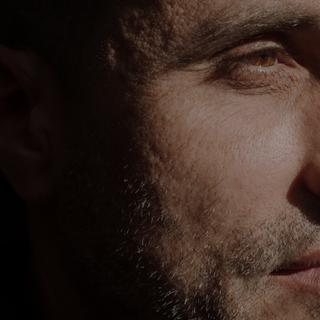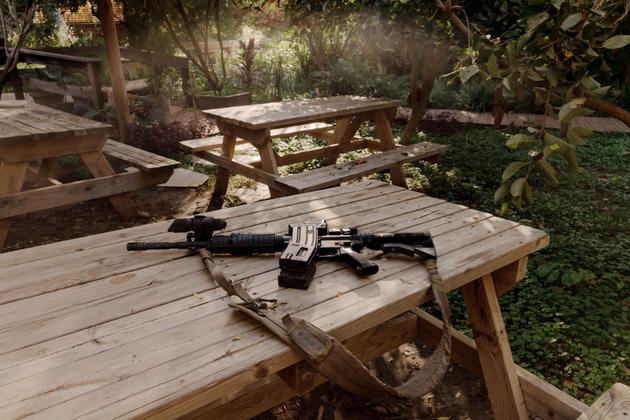


The Israeli soldiers, killers and victims, treated for PTSD: 'You think we're monsters, don't you?'
FeatureAfter more than a year of war in the Gaza Strip, many Israeli conscripts and reservists, witnesses and actors in the destruction of the Palestinian enclave, are developing post-traumatic stress disorder.
The place was peaceful. Lush vegetation surrounded the stables. Lounge areas were set up. Everywhere, small objects – a wooden heart, potted candles, an old transistor – instilled an intimate feeling that encouraged well-being, were it not for a striking detail: a fake street sign, "PTSD boulevard," affixed between horse stalls.
For months, Danny's Ranch, 30 kilometers south of Tel Aviv in Sitria, has been home to hundreds of Israeli soldiers returning from Gaza, traumatized by the war, the longest and bloodiest ever undertaken by Israel in retaliation for the October 7, 2023 massacre committed by Hamas on Israeli territory.
Several times a week, the soldiers attend group and individual therapy sessions, in an attempt to free themselves from the nightmarish images that haunt them. Some go on their own but many are increasingly referred by their superiors. In mid-October, General Eyal Zamir, director general of the Ministry of Defense, which partially funds the rehabilitation programs, visited the facilities. Horses are there for the treatment process.

On that day, at the edge of the open-air carousel, half a dozen men were talking to each other around a vast round table on which sat an assault rifle. One was in military uniform, while another, wearing a white T-shirt and cap, was one of the soldiers who identified the body of Yahya Sinwar, the Hamas leader killed by an Israeli patrol in the south of the Gaza Strip on October 17.
Like most of his peers, he chose to slip away. Adi stayed. On the express condition of not mentioning his last name, he agreed to talk to us. "You think we're monsters, don't you? In many other countries too, for that matter..." he said, before pausing. He searched for words.
'A cage under fire'
At 43 years old, the reservist – in Israel, every soldier is assigned to a reserve unit at the end of his military service until the age of 51, for varying periods of time – was sent to Gaza in the hours following October 7. "I commanded a unit in charge, on the front line, of opening the roads with bulldozers and helping the tanks. It was like being in a cage under fire..." Another pause. "They [the Palestinians] don't have uniforms. We don't know who the enemy is, the tension was very high, we didn't rest, we didn't eat," he said with effort. In December in Shujaiya, a district of Gaza City razed to the ground by Israeli forces at the cost of hundreds of deaths, Adi was wounded by a rocket fire. Two weeks later, he was sent back to Khan Yunis, in the south of the enclave, where the army was just penetrated.
You have 75.12% of this article left to read. The rest is for subscribers only.
